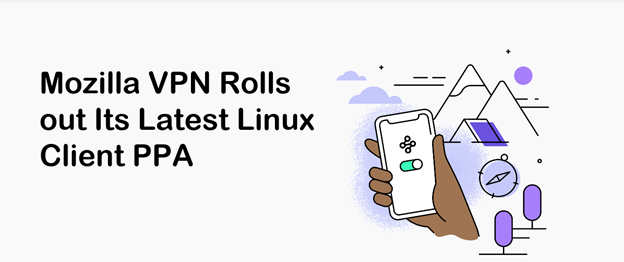
Mozilla, in collaboration with Mullvad VPN, has released its latest Linux Client PPA, and people cannot help but compare the two. In July, Mozilla landed on Windows and Android and has recently released its Mac and Linux VPN.
It is currently available only in six countries – the US, Canada, the UK, Singapore, New Zealand, and Malaysia – it is expanding its network. One Mozilla subscription covers up to 5 devices, including Linux. Now, you can connect to more than 280 servers with a VPN on your Linux devices. It is not one of the cheapest VPNs in the industry but does feature a fast service.
In 2019, Mozilla partnered with Mullvad for their Firefox VPN service. According to Mozilla, their top VPN service uses Mozilla VPN WireGuard servers. It is known for its Firefox browser, and is now a VPN for Mac, Linux, Android, and Windows users.
Mullvad itself is a premium VPN with top-of-the-line features like OpenVPN config, WireGuard, etc. All this is priced at just €5 per month. Mozilla VPN, on the other hand, comes at $4.99 per month. This has sparked a heated debate among the VPN users as both services use the same servers, and Mozilla is also deemed the “same service geared for a different audience.”
Mozilla’s motivation behind introducing their VPN service is pretty much clear. They want an additional income stream to decrease their reliance on Google for funds.
Online users have also raised privacy concerns over this latest Linux client PPA. Mullvad VPN users believe that if they’re already using this service, there is no point in giving your data and information to another company (Mozilla).
Mozilla CEOs’ latest quote regarding the unrest in the US Capitol on January 6 further sparked the Mozilla VPN’s stance. She made serious recommendations to address the issue. According to the official Mozilla article, “We need more than de-platforming” the following recommendations were made by its CEO, Mitchell Baker:
“Reveal who is paying for advertisements, how much they are paying, and who is being targeted.”
“Commit to meaningful transparency of platform algorithms so we know how and what content is being amplified, to whom, and the associated impact.”
“Turn on by default the tools to amplify factual voices over disinformation.”
“These are the actions the platforms can and should commit to today,” wrote Mitchell Baker. “The answer is not to do away with the internet but to build a better one that can withstand and gird against these types of challenges. This is how we can begin to do that.”
These recommendations of transparency and censorship seem a little too forwarding coming from a company that is a “Privacy Company” and offering VPN services. This statement has also raised many questions about what “factual voices” are, and will this transparency lead to less online privacy for VPN users?
